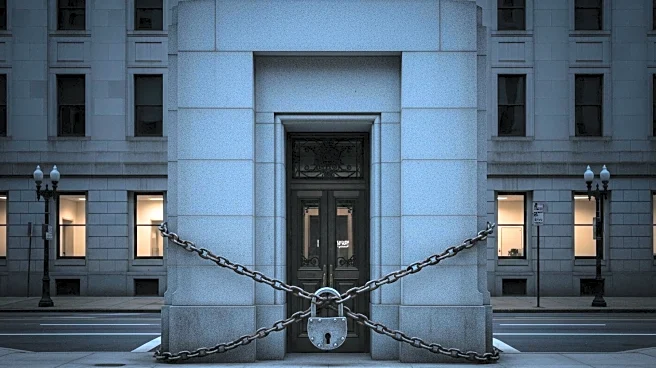What is the story about?
What's Happening?
The U.S. Senate has been unable to pass a funding bill aimed at ending the current government shutdown. Despite efforts to negotiate and reach a consensus, no agreement was reached on Friday, leaving federal operations in a state of suspension. The failure to pass the bill means that various government services remain halted, affecting federal employees and public services nationwide. The shutdown has been a point of contention among lawmakers, with differing views on budget allocations and policy priorities contributing to the impasse.
Why It's Important?
The continuation of the government shutdown has significant implications for the U.S. economy and public services. Federal employees face uncertainty regarding their pay and job security, while essential services may experience disruptions. The shutdown also affects public confidence in government efficiency and can have ripple effects on sectors reliant on federal operations. The inability to pass a funding bill highlights the deep political divisions within Congress, which could impact future legislative negotiations and public policy decisions.
What's Next?
As the shutdown persists, pressure mounts on lawmakers to find a resolution. Continued negotiations are expected, with potential compromises on budgetary issues being explored. The prolonged shutdown may lead to increased public and political pressure on Congress to act swiftly. Stakeholders, including federal employees, businesses, and the public, will be closely monitoring developments, hoping for a swift resolution to restore government operations.
















